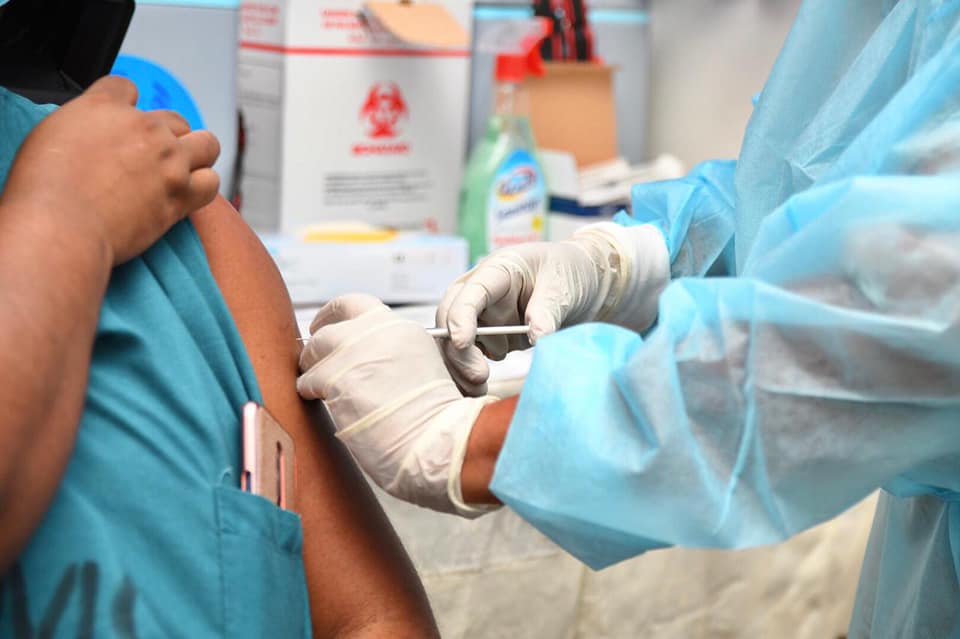
Guyana will not be allowing persons vaccinated against COVID-19 to bypass the strict travel regulations and Minister of Health, Dr Frank Anthony on Tuesday made it clear that persons desirous of traveling would still be required to present a negative PCR test.
Guyana began its COVID immunisation on February 11 with a donation of 3,000 doses of the Oxford-AstraZeneca vaccine from Barbados. This is currently being administered to some 1,400 frontline health workers who are required to take two doses of the vaccines; the second is given four to 12 weeks after the first, however, the Health Minister noted that a decision was made to increase that to between eight to 12 weeks. This, according to studies by the World Health Organisation (WHO), has shown to increase the efficacy of the vaccines.
Meanwhile, the CARICOM Secretariat also received 200 doses to vaccinate 100 persons.

Once persons complete the first dose of the vaccine, they are given a vaccination card but this will not be used as a passport to travel.
“Even if you are immunised you still would be required to do PCR test and the reason being is none of the vaccines are 100 per cent efficacious, which means that with the small percentage people can get infected.
“The bottom-line here is even if you have received your two shots, you would still need to do PCR test if you are travelling to another country,” the minister explained.
According to Dr Anthony, this issue was raised at the level of the Pan American Health Organisation/ World Health Organisation (PAHO/WHO).
“This is something that we have raised at the level of the Pan American Health Organisation because I know a lot of people would be asking this question and I have also raised it at the level of the WHO and so far, the advice have been that we continue to ask for the PCR tests,” the minister said.
The minister also stated that scientists and experts remain uncertain whether the vaccines being used can prevent the transmission of the virus.
Meanwhile, in terms of the immunisation database, the minister assured that a strict and confidential system is ongoing. The data is being compiled both manually and electronically.
“When we give you an injection, we are actually stating from which batch you got it, the date of expiry, and a whole host of other information goes on the information that we collect and then who receives it, so if per chance there is any side effects, we can go back and trace which vial this vaccine actually came from, and if there something wrong with that batch and so forth,” the minister explained.
A National Committee was also set up to monitor any adverse effects of the vaccine. Guyana is expected to receive thousands of dosage of additional vaccines by the end of the month; the government has already secured a donation of 22,000 doses of the Sinopharm vaccine from China and another 104,000 does of the AstraZeneca vaccine through the COVAX facility.
Guyana will receive another 149,000 through the African Union/ CARICOM agreement and is also in talks with India for additional vaccines.





